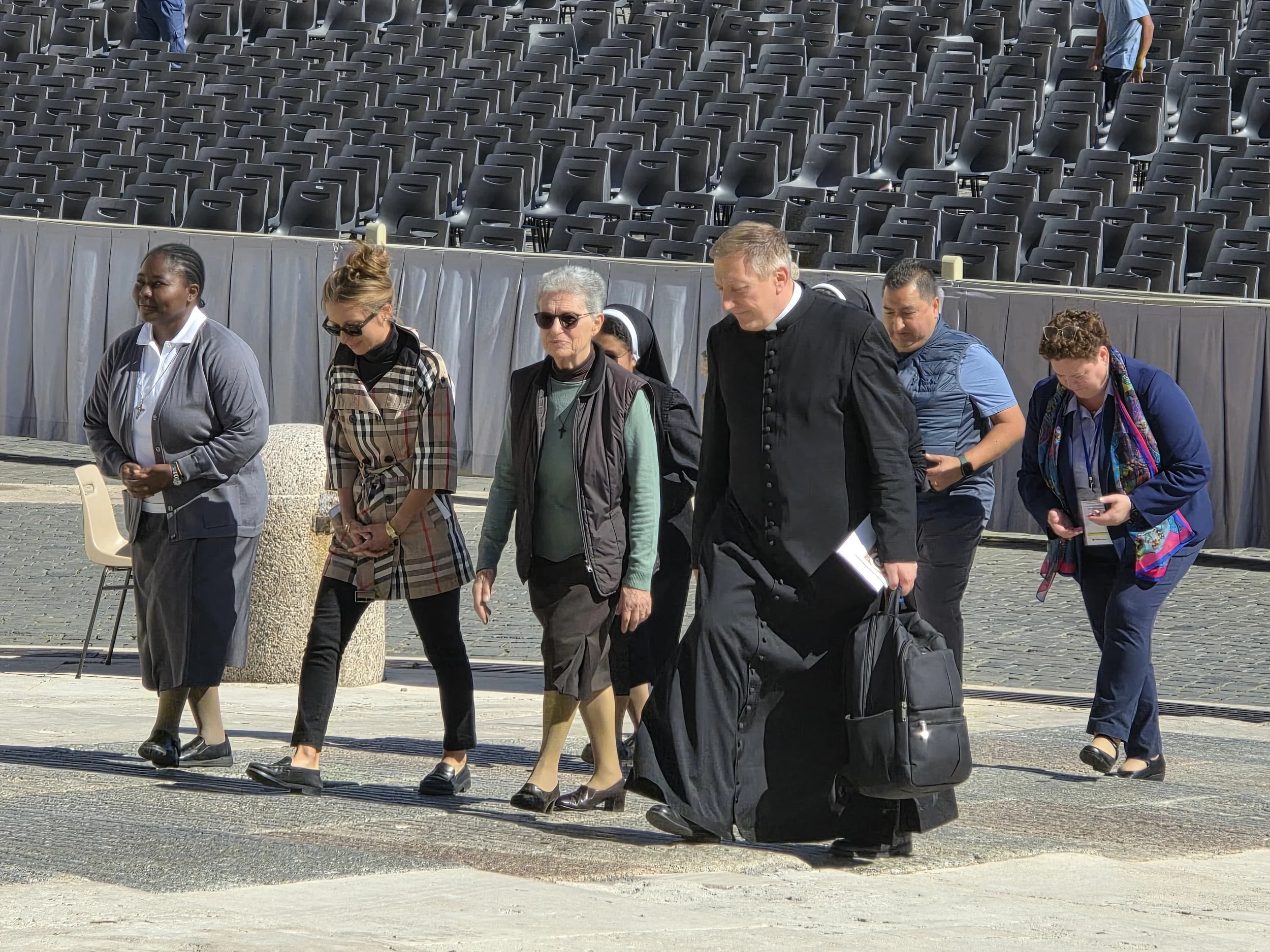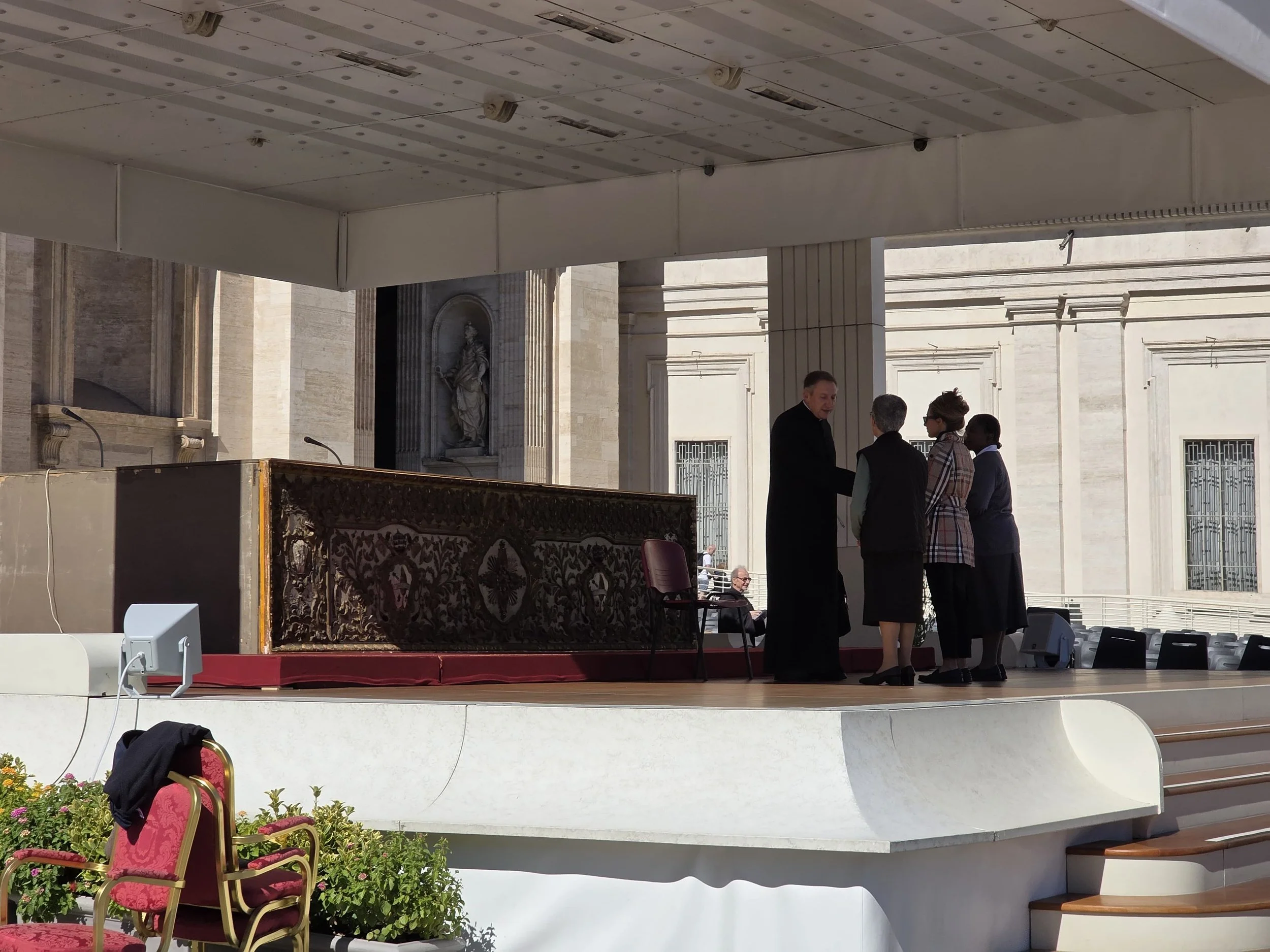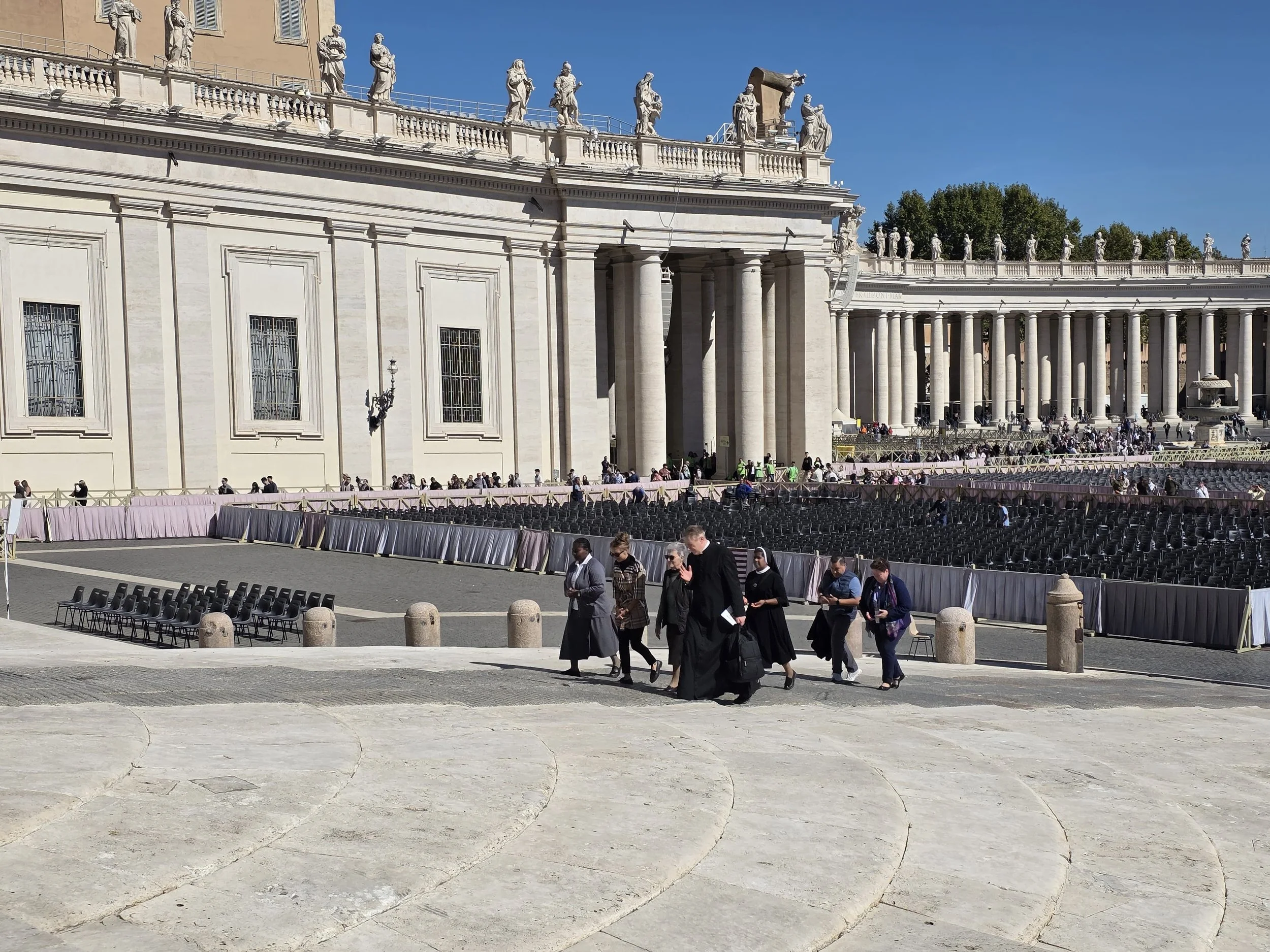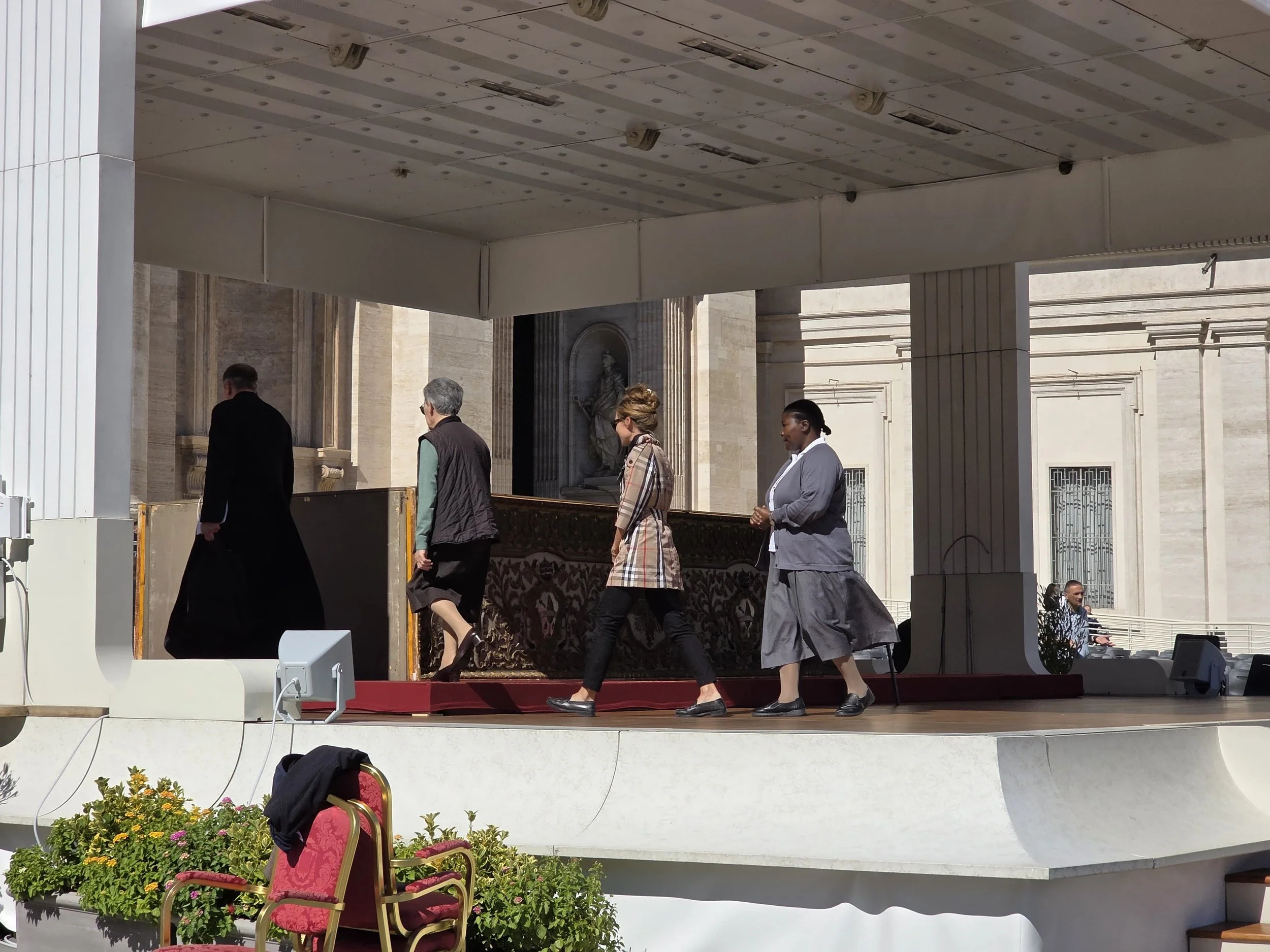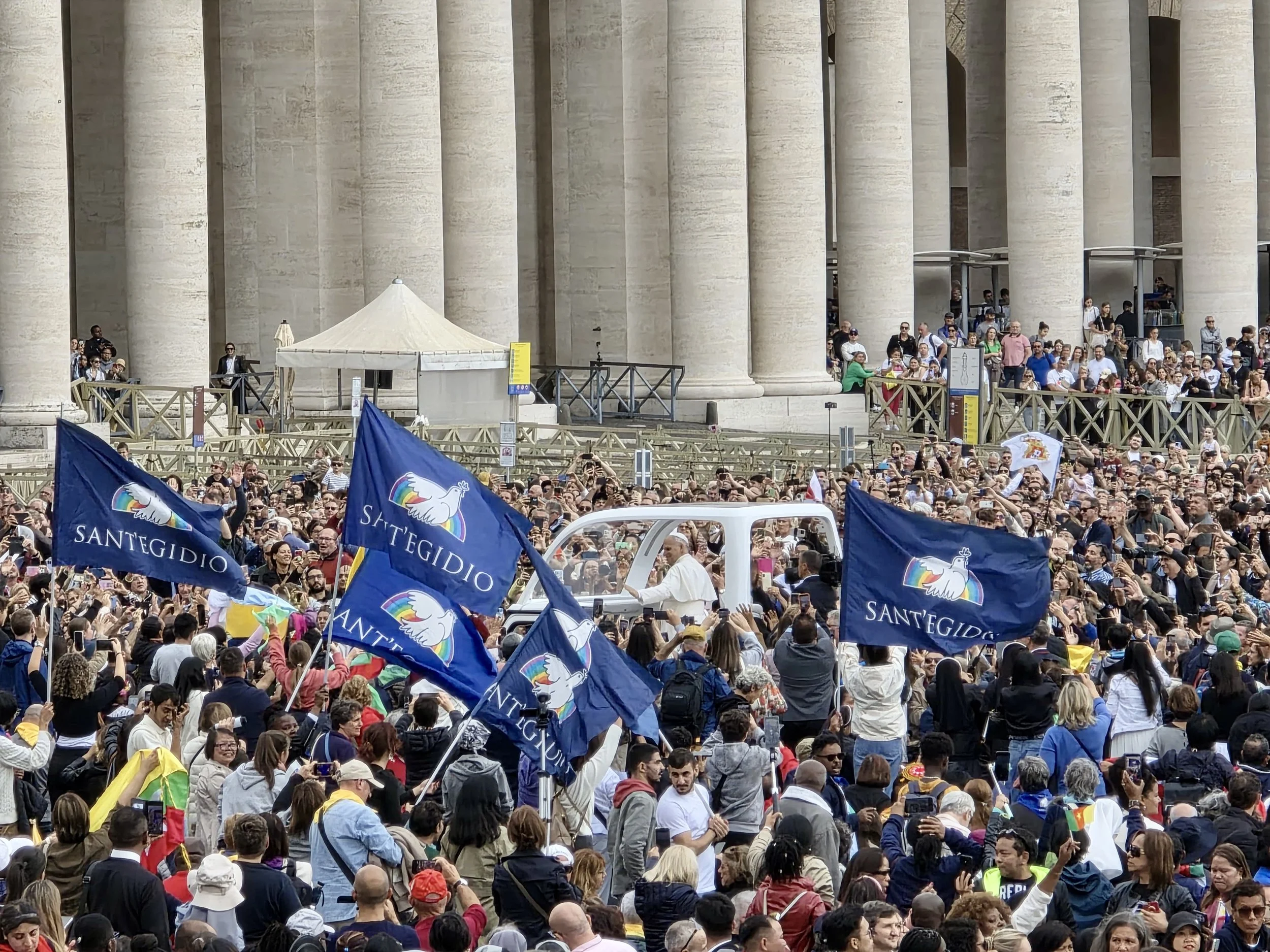To Hope is To Choose: Jubilee Audience with Pope Leo
Pope Leo’s Catechesis
Below is the Holy Father’s Address to those participating in the Jubilee of the Missions and Migrants General Audience, and photos of We Are A Mission practicing for Sunday’s Offertory to Pope Leo!
Dear brothers and sisters, good morning, and welcome to all!
In the biblical passage just read (Lk 16:13–14), the Evangelist notes that some people, after hearing Jesus, mocked Him. His words about poverty seemed absurd to them. More precisely, they felt personally challenged by their attachment to money.
Dear friends, you have come as pilgrims of hope, and the Jubilee is a time of concrete hope — a moment in which our hearts can find forgiveness and mercy, so that everything can begin anew. The Jubilee also opens us to hope in a different distribution of wealth, in the possibility that the earth might truly belong to everyone — because, in reality, it does not. In this year, we must choose whom we will serve: justice or injustice, God or money.
To hope is to choose. This means at least two things.
The most evident is that the world changes if we change. That is why we go on pilgrimage — it is an act of choice. The Holy Door is crossed to enter into a new time.
The second meaning is deeper and subtler: to hope is to choose, because whoever does not choose falls into despair. One of the most common consequences of spiritual sadness — that is, acedia — is choosing nothing at all. The person who suffers from it is seized by an inner laziness that is worse than death. To hope, instead, is to choose.
Today I would like to recall a woman who, with the grace of God, knew how to choose — a courageous and countercultural young woman: Clare of Assisi. And I am glad to speak of her precisely on the feast of Saint Francis.
We know that Francis, in choosing evangelical poverty, had to break with his own family. Yet he was a man — the scandal was there, but it was less. Clare’s choice was even more astonishing: a young woman who wanted to be like Francis, who wanted to live, as a woman, as free as those brothers!
Clare understood what the Gospel asks. But even in a city that considers itself Christian, the Gospel taken seriously can appear revolutionary. Then, as now, one must choose! Clare chose — and that gives us great hope.
We can see two consequences of her courage in following that desire: first, many other young women from that region found the same courage and chose the poverty of Jesus, the life of the Beatitudes; second, that choice was not a passing flame — it endured through time, all the way to us. Clare’s choice has inspired vocational choices all over the world, and continues to do so today.
Jesus says: No one can serve two masters. That is why the Church is young and attracts the young. Clare of Assisi reminds us that the Gospel appeals to the young. It is still true today: young people are drawn to those who have made a choice and live out the consequences of it. And this, in turn, inspires others to choose. It is a holy imitation: one does not become a “photocopy,” but rather — when one chooses the Gospel — one chooses one’s true self. One loses oneself and finds oneself. Experience shows that this is indeed what happens.
Let us therefore pray for the young, and let us pray that we may be a Church that does not serve money or itself, but the Kingdom of God and His justice — a Church that, like Saint Clare of Assisi, has the courage to dwell in the city in a different way. This gives hope!
